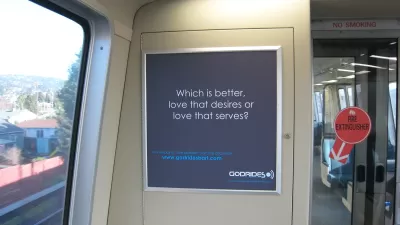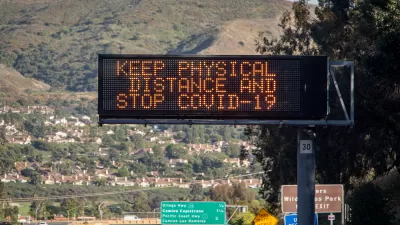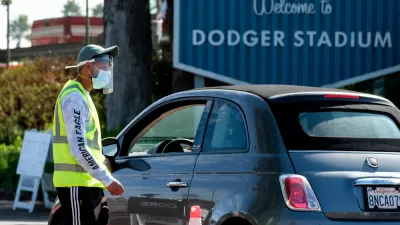The greater Bay Area is enjoying a substantial increase in road maintenance funding from local measures, like bonds, city and county sales taxes, and development fees, part of a growing trend in compensating for a shortage of state gas tax funds.
In the absence of a state gasoline excise tax that has not effectively been raised since 1994 (notwithstanding a complex 2010 gas tax swap), many California cities and counties have had to rely on self-generated revenues, though none come from driver user fees. The trend is particularly prevalent in affluent Bay Area cities and counties.
"From the East Bay to Silicon Valley to San Francisco, local agencies will be spending up to four to five times more for road maintenance in the coming years than they were just a couple of years ago," writes Gary Richards, a.k.a. Mr. Roadshow of the San Jose Mercury News. "(I)t's a reversal of the trend over the past two decades, when the mantra was 'we have no money' to fix roads.
San Francisco was among the first to go to voters for new funding for roadwork, passing a $248 million bond measure four years ago. But few cities are spending as much as San Jose will this year, where the usual $20 million will jump to $55 million thanks to a grant and [$24 million in one-time] development fees.
A sizable chunk will come annually for decades through county sales tax measures that stretch for 30 or more years in Alameda and Contra Costa counties. [See "The Biggest Transportation Winner on the Nov. 4 Ballot]. And a number of cities, such as Santa Cruz, Orinda, Moraga and El Cerrito, have passed tax measures to fix their roads.
Richards goes on to mention which Bay Area cities will increase road funding, by how much, and from what sources. The trend will continue as "Santa Clara County is expected to put a sales tax measure on the ballot next year, and pothole repairs will likely be high on the list of work," he notes.
Hat tip to MTC-ABAG Library
FULL STORY: Bay Area cities will see millions of dollars more for pothole repairs

Maui's Vacation Rental Debate Turns Ugly
Verbal attacks, misinformation campaigns and fistfights plague a high-stakes debate to convert thousands of vacation rentals into long-term housing.

Planetizen Federal Action Tracker
A weekly monitor of how Trump’s orders and actions are impacting planners and planning in America.

In Urban Planning, AI Prompting Could be the New Design Thinking
Creativity has long been key to great urban design. What if we see AI as our new creative partner?

Portland Raises Parking Fees to Pay for Street Maintenance
The city is struggling to bridge a massive budget gap at the Bureau of Transportation, which largely depleted its reserves during the Civd-19 pandemic.

Spokane Mayor Introduces Housing Reforms Package
Mayor Lisa Brown’s proposals include deferring or waiving some development fees to encourage more affordable housing development.

Houston Mayor Kills Another Bike Lane
The mayor rejected a proposed bike lane in the Montrose district in keeping with his pledge to maintain car lanes.
Urban Design for Planners 1: Software Tools
This six-course series explores essential urban design concepts using open source software and equips planners with the tools they need to participate fully in the urban design process.
Planning for Universal Design
Learn the tools for implementing Universal Design in planning regulations.
Gallatin County Department of Planning & Community Development
Heyer Gruel & Associates PA
JM Goldson LLC
City of Camden Redevelopment Agency
City of Astoria
Transportation Research & Education Center (TREC) at Portland State University
Jefferson Parish Government
Camden Redevelopment Agency
City of Claremont





























